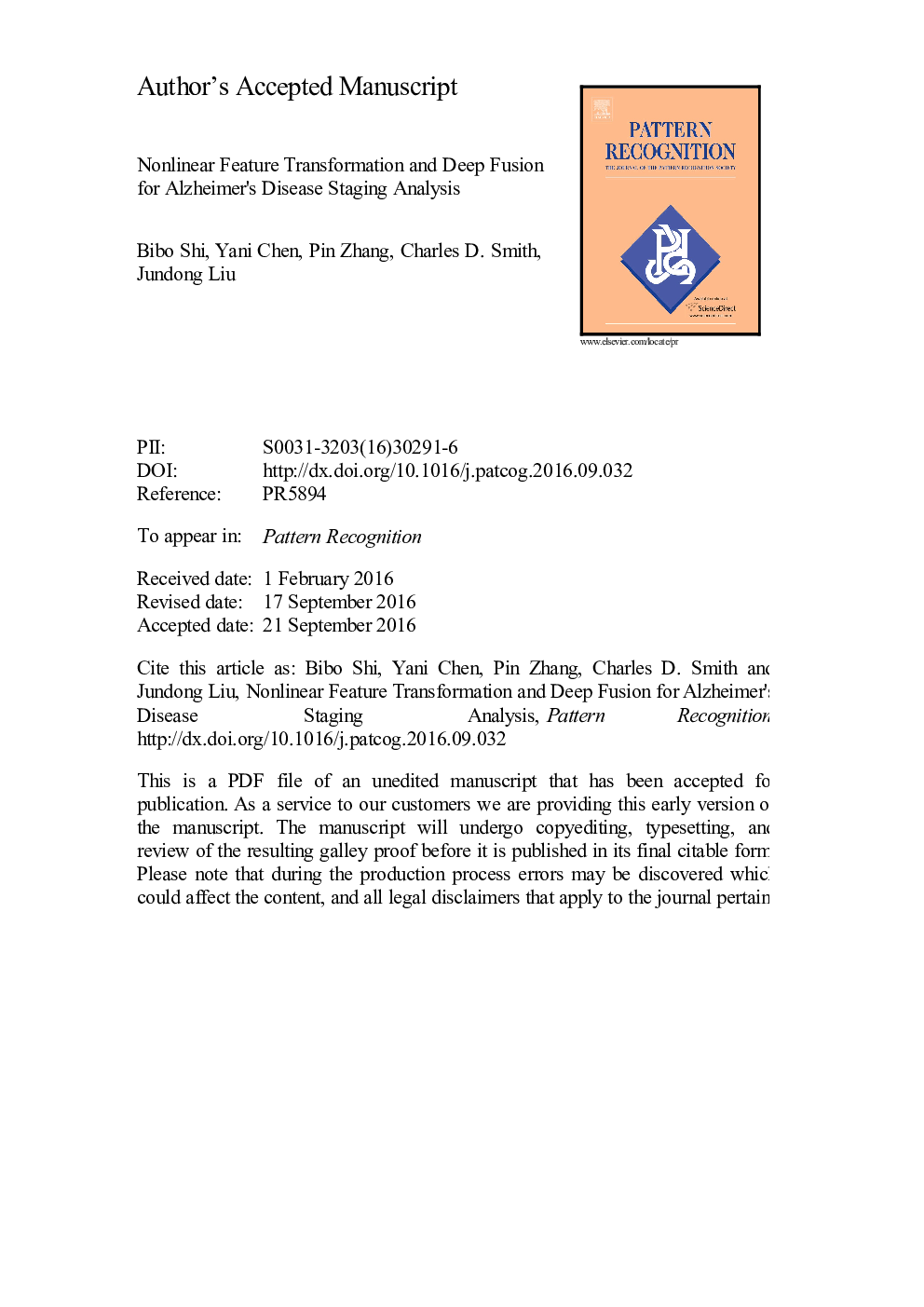| Article ID | Journal | Published Year | Pages | File Type |
|---|---|---|---|---|
| 4969836 | Pattern Recognition | 2017 | 38 Pages |
Abstract
In this study, we develop a novel nonlinear metric learning method to improve biomarker identification for Alzheimer's Disease (AD) and Mild Cognitive Impairment (MCI). Formulated under a constrained optimization framework, the proposed method learns a smooth nonlinear feature space transformation that makes the mapped data more linearly separable for SVMs. The thin-plate spline (TPS) is chosen as the geometric model due to its remarkable versatility and representation power in generating sophisticated yet smooth deformations. In addition, a deep network based feature fusion strategy through stacked denoising sparse auto-encoder (DSAE) is adopted to integrate cross-sectional and longitudinal features estimated from MR brain images. Using the ADNI dataset, we evaluate the effectiveness of the proposed feature transformation and feature fusion strategies and demonstrate the improvements over the state-of-the-art solutions within the same category.
Keywords
Related Topics
Physical Sciences and Engineering
Computer Science
Computer Vision and Pattern Recognition
Authors
Bibo Shi, Yani Chen, Pin Zhang, Charles D. Smith, Jundong Liu, For the Alzheimer's Disease Neuroimaging Initiative For the Alzheimer's Disease Neuroimaging Initiative,
